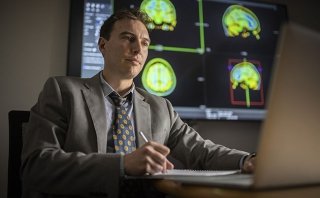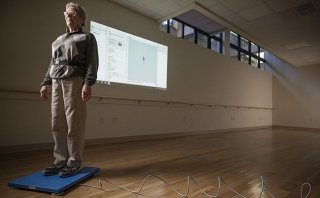
Brad Manor, PhD
- Senior Scientist
- Associate Professor of Medicine, Harvard Medical School and Beth Israel Deaconess Medical Center
- Faculty
Dr. Manor’s career goal is to alleviate the burden of balance decline that often accompanies biological aging into senescence. As the Director of the Mobility and Falls Program at the Hinda and Arthur Marcus Institute for Aging Research, he works to achieve this goal by directing interdisciplinary, translational research in the fields of human balance and rehabilitative medicine. His research combines biomechanical assessments of human movement with advanced medical imaging, noninvasive brain stimulation and nonlinear signal processing techniques to: 1) Identify the link between brain function, balance and falls in older adults; and 2) Design rehabilitative interventions that improve balance via optimization of brain function and exploitation of its adaptive properties.






